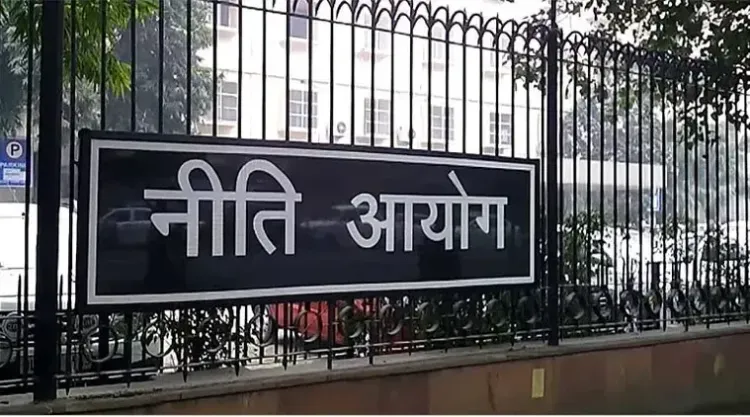Transformative Reforms and Global Trade Leadership Essential for Viksit Bharat by 2047: Government

Synopsis
Key Takeaways
- Bold reforms are essential for economic growth.
- Leadership in global trade is critical for Viksit Bharat.
- Innovation and infrastructure development are crucial.
- Investment in research and development is necessary.
- Renewable energy leadership is important for India.
New Delhi, Feb 7 (NationPress) Transformative reforms and an assertive role in global trade are vital for realizing Viksit Bharat by 2047, as highlighted by government experts.
The panel, which included the Chief Economic Advisor and representatives from the Ministry of Defence, convened during a conclave hosted by NITI Aayog in the capital on Thursday. They explored India's path towards becoming a global economic powerhouse.
NITI Aayog stated, “The agreement was that transformative reforms, sustainable energy initiatives, and a pivotal role in global trade will be fundamental to attaining Viksit Bharat by 2047.”
Moreover, discussions underscored the significance of innovation and infrastructure development.
Experts engaged in a panel discussion regarding the necessity to “boost private sector investment in research and development, fiscal stability, and integration into global supply chains.”
Key areas such as sovereign credit ratings, energy independence, and access to vital raw materials were recognized as crucial for enduring economic resilience. Additionally, education, skill enhancement, and infrastructure investments were deemed essential for capitalizing on India's demographic dividend.
Furthermore, the conclave featured discussions on “India’s diplomatic maneuvers in forming alliances with both the Global South and North.” The discourse emphasized India’s economic resilience and its capacity to navigate geopolitical trade challenges.
Experts highlighted India’s leadership in renewable energy and the necessity for international collaboration in accessing critical mineral resources.
NITI Aayog remarked, “Trade liberalization, tariff reductions, and technological partnerships were examined as potential pathways to elevate India's global trade status.”
The sessions also pointed out the significance of digital public infrastructure in promoting multilateral and bilateral collaborations, while legal reforms were recognized as crucial in attracting investments and enhancing the business environment.
The conclave delivered insightful perspectives on India’s economic outlook, strategic alliances, and national security readiness.










